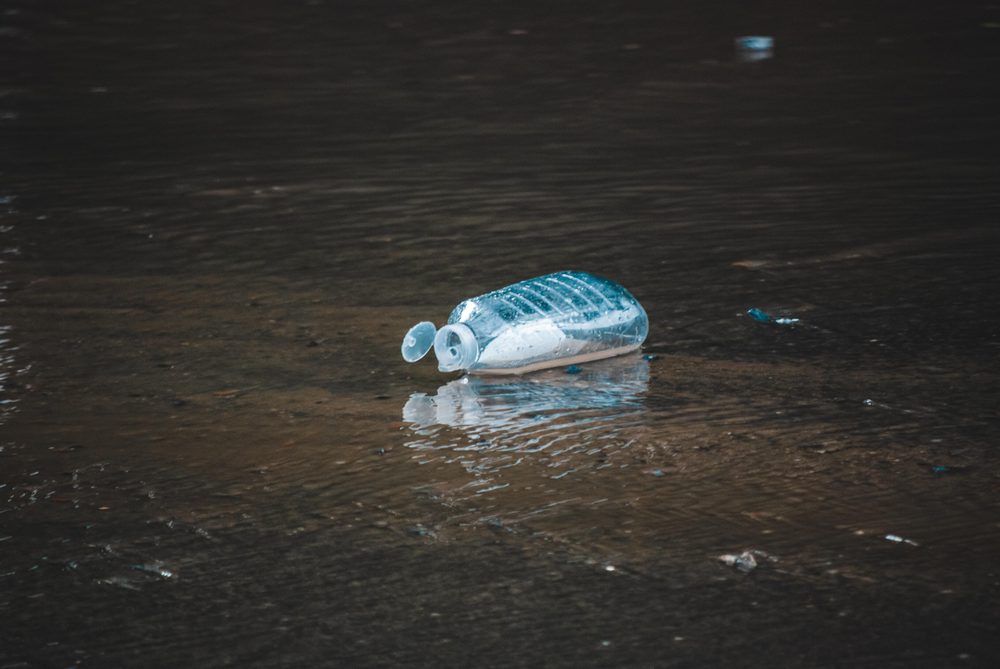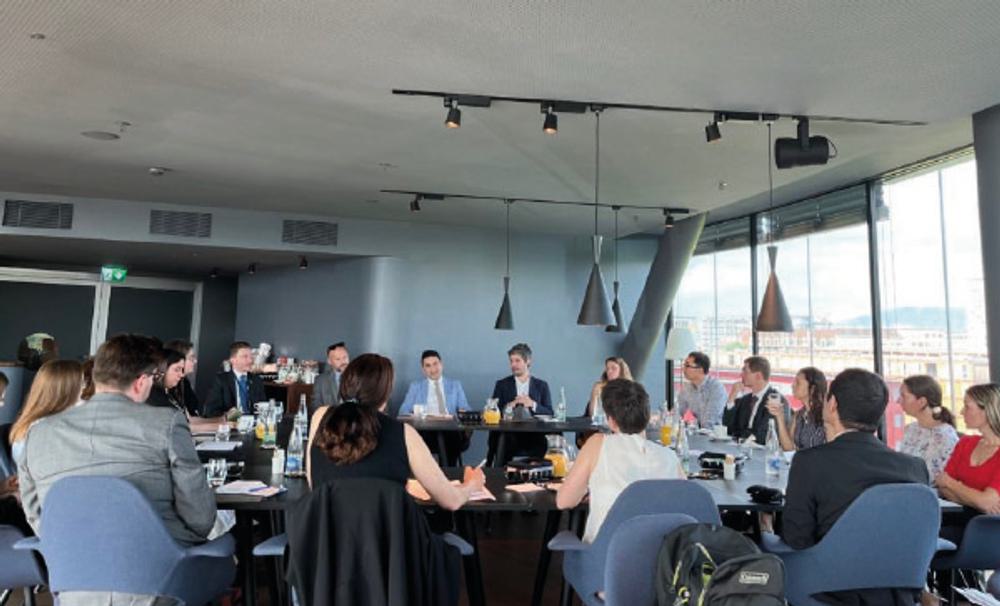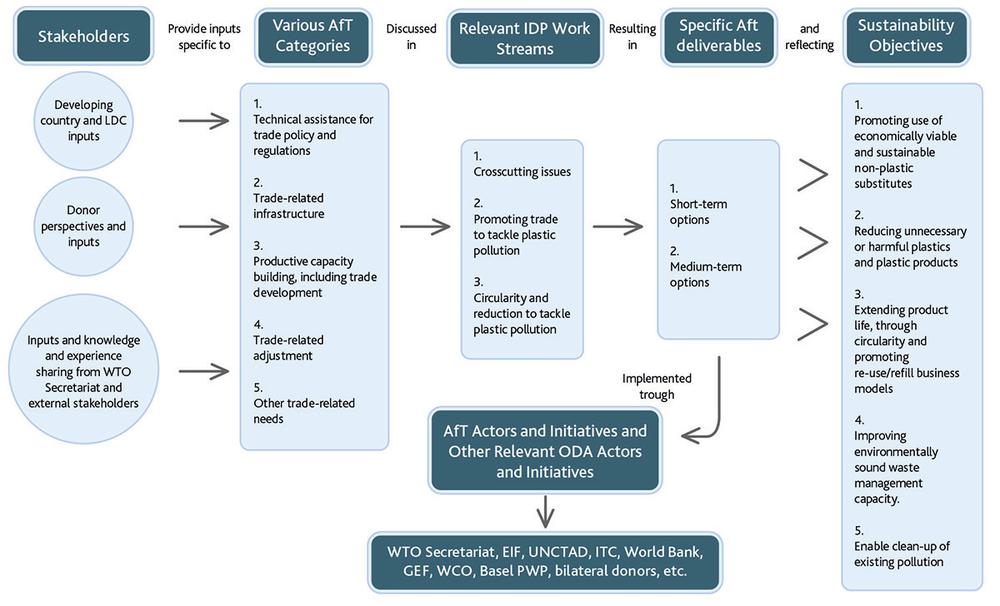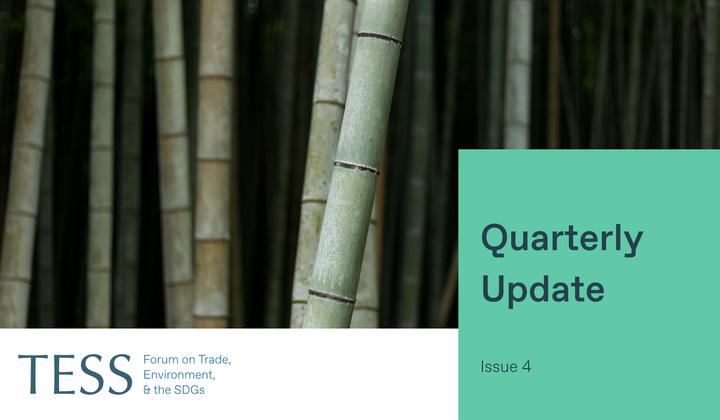TESS celebrated its first anniversary in June! In reaching this milestone, we are proud of how much we have achieved in just one year. As we look to the tremendous and exciting work ahead, we thank all who support our work to foster inclusive cooperation on trade and sustainability.
Among our achievements, we worked to support the trade ministers of Ecuador, the European Union, Kenya, and New Zealand to convene an informal dialogue among trade ministers on climate, trade, and sustainable development on 13 June. Held on the margins of the 12th WTO Ministerial Conference (MC12), the co-hosts shared their joint vision of forging an inclusive Coalition of Trade Ministers on Climate Action by early 2023, which was supported by trade ministers from different regions and levels of development.
A key highlight of the ministerial conference was the WTO’s new multilateral agreement to curb harmful fisheries subsidies. While implementation will require sustained attention, and negotiators have outstanding work to address the full range of fisheries subsidies that drive overfishing, as the WTO’s first environmental treaty, it represents a historic landmark.
The MC12 Outcome Document also marked the first time that the full WTO membership has specifically recognized the triple global environmental crises of climate change and related natural disasters, biodiversity loss, and pollution. Members reiterated the importance of the multilateral trading system to promoting the economic, social, and environmental dimensions of the Sustainable Development Goals. Alongside, trade ministers representing three member-led initiatives on trade and environmental sustainability, plastic pollution, and fossil fuel subsidy reform held press briefings to share updates on their work and the growing number of co-sponsors.
At TESS, these developments at MC12 bolster our conviction about the value of supporting dialogue and action at the multilateral level on the nexus of trade, environment, and sustainable development.
What We're Publishing

On Climate Change
TESS work on trade and climate change made important strides. The quarter opened with a policy brief by Christophe Bellmann that explores the relationship between trade, climate change, and sustainable development, and the potential for trade policies to help address the climate crisis in the context of international cooperation at the WTO.
Our team was also busy curating a series of policy briefs by leading experts from the Caribbean, South America, South Asia, sub-Saharan Africa, and least developed countries to highlight regional perspectives and enable more inclusive discussions at the WTO. These papers will be discussed at roundtables co-hosted with regional partners and released in the third quarter of 2022.

On Plastic Pollution
TESS continued to offer thought leadership on trade and plastic pollution. In May, Carla Vaca Eyzaguirre and Carolyn Deere Birkbeck penned a policy brief on options for amending the Harmonized System (HS) to support transparency and monitoring related to trade and plastic pollution. The paper seeks to address a critical missing piece for evidence-based policymaking to tackle plastic pollution: reliable and disaggregated data on cross-border trade flows across the life cycle of plastics.
Mahesh Sugathan also published a policy brief in May where he identifies how aid for trade could be harnessed to support developing and least developed countries to address their expressed priorities and needs on trade-related aspects of the plastic pollution crisis. The paper was adapted into a blog for the Enhanced Integrated Framework’s Trade for Development News, focusing specifically on pathways for aid for trade to support least developed countries to address trade-related challenges related to plastic pollution.

On Trade in Environmental Goods and Services
In the first quarter of 2022, TESS has hosted a series of informal discussions in Geneva to bring together policymakers, experts, and other actors. This includes meetings with ambassadors and delegations from developed and developing countries active on issues of trade, environment, and sustainable development; stakeholders involved in the WTO’s informal dialogue on plastics pollution and environmentally sustainable plastics trade; and thematic expert roundtables on aid for trade, environmental goods and services, and fossil fuel subsidy reform. TESS has also co-convened and participated in several discussions on trade issues related to climate change, the circular economy, non-plastic substitutes, biodiversity, and deforestation.
What We're Discussing

Recent TESS Events
In the second quarter of 2022, TESS continued its work to bring together policymakers, experts, and other stakeholders from different regions and policy communities active at the intersection of trade, environment, and sustainable development. This included a range of informal discussions with Geneva-based trade officials and stakeholders ontrade and environmental sustainability at the WTO, circular economy, and the aid for trade and sustainability agenda. We sought to prioritize attention to developing country perspectives on these topics, including by supporting engagement of developing country experts in dialogue on trade and deforestation-free products. During this quarter, TESS also supported informal consultations between stakeholders and the coordinators of the IDP at the WTO, and participated actively in plenary and working sessions of both the IDP and TESSD processes at the WTO.
As part of our dialogue series on Climate, Trade, and Sustainable Development: Multilateral Perspectives, we hosted a roundtable that explored options for international cooperation to foster access to and transfer of environmental technologies through trade-related policies and incentives. The video recording is available here.
We also co-hosted the Geneva launch of the Climate Vulnerable Economies Loss Report, which examines the economic losses attributable to climate change in the Vulnerable Twenty (V20) Group. The event focused on proposing pathways to address economic loss and damage, including through innovative financing mechanisms, as well as the role of trade cooperation in effectively averting, minimizing, and addressing loss and damage. The video of the event is available here.
At the end of the quarter, we organized a very successful and interactive “deep dive” workshop on promoting and facilitating trade in environmental goods and services. Aimed at supporting discussions in the WTO context, the workshop brought to together Geneva-based trade officials from a diversity of governments, supported by inputs from leading international experts. The slides of discussion starters for each session can be downloaded here.
Another important marker for TESS this quarter was our contribution to preparations for negotiations on an international treaty on plastic pollution. We invite you to read our statement, delivered on 1 June, to the multi-stakeholder dialogues convened as part of the open-ended working group meetings held in Senegal to prepare for the work of the intergovernmental negotiating committee.
In Case You Missed It
TESS was pleased to contribute to the 2022 Trade + Sustainability Hub, convened alongside MC12 by IISD and partners, as co-organisers of a roundtable on Trade in the Race to Preserve the Environment. Trade Ministers provided updates on key developments on the environment at the WTO, followed by speakers from a range of stakeholder groups exploring how multilateral trade cooperation can address environmental challenges, ranging from fisheries subsidies to plastic pollution and climate change. You can view the recording here.
TESS was delighted to join the first World Customs Organization Green Customs Global Conference in June, aimed at raising awareness of the role of customs in protecting the environment and hearing the expectations for customs from a range of stakeholders. Carolyn Deere Birkbeck spoke on priorities and options for future work on HS classifications and trade data as vital tools for environmentally sustainable trade, focusing her presentation on options for HS amendments that would support international efforts to end plastic pollution. In April, TESS co-hosted a hybrid half-day conference on Next Steps for the Plastic Pollution Treaty attended by over 500 people from across the world. All of the presentations and a video recording are available here.
Our Quarterly Graph

A Process for Advancing Cooperation on Aid for Trade Priorities Related to Plastic Pollution
Our quarterly graph illustrates a process for advancing cooperation on aid for trade (AfT) and plastic pollution as discussed in the context of the IDP at the WTO. The process emphasizes the importance of the identification of AfT needs by developing and least developed countries as well as external stakeholders.



